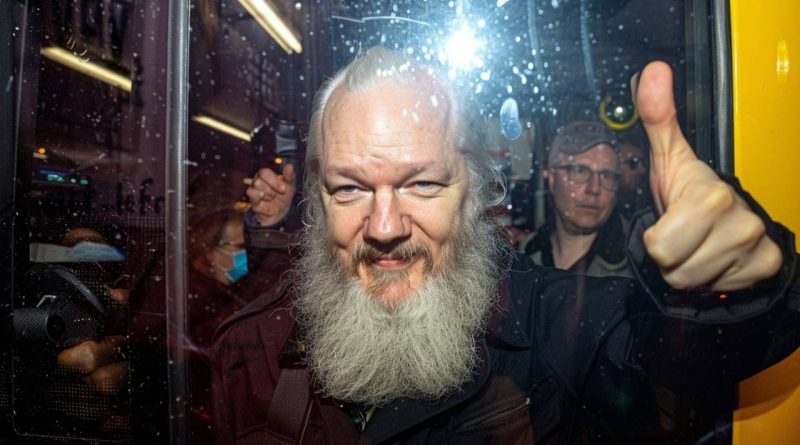
Julian Assange, the controversial founder of WikiLeaks, has recently made headlines once again. This time, it’s for a dramatic turn of events that has seen him plead guilty in a plea deal, resulting in his release from prison. This development marks a significant moment in a saga that has captivated the world for over a decade.
Let’s dive into the details of Assange’s plea deal, his release, and the broader implications of this outcome.
The Background: A Long Legal Battle
WikiLeaks and its Impact
WikiLeaks, founded by Assange in 2006, quickly became notorious for publishing classified documents from various governments, particularly the United States. The site’s most significant releases included the Iraq War Logs, the Afghan War Diary, and a trove of diplomatic cables. These publications sparked global debates about transparency, privacy, and the ethics of whistleblowing.
Assange’s Legal Troubles
Assange’s legal troubles began in earnest in 2010 when Swedish authorities issued an arrest warrant over allegations of sexual misconduct, which he has always denied. Fearing extradition to the U.S. on charges related to WikiLeaks’ publications, Assange sought asylum in the Ecuadorian Embassy in London in 2012. He remained there for nearly seven years until his arrest by British authorities in April 2019 after Ecuador withdrew his asylum.
Charges in the United States
In the U.S., Assange faced 18 charges under the Espionage Act and related to computer intrusion, which collectively could have resulted in a sentence of up to 175 years in prison. His detention in a high-security prison in London, pending extradition to the U.S., became a focal point for debates about press freedom and the rights of journalists.
The Plea Deal: A Strategic Move
Details of the Plea Deal
Assange’s decision to plead guilty comes as part of a carefully negotiated plea deal. While the exact terms of the deal have not been fully disclosed, sources close to the matter suggest that Assange agreed to plead guilty to a lesser charge in exchange for a significantly reduced sentence. This move appears to be a strategic effort to avoid the potentially harsh penalties he faced under the original charges.
Factors Influencing the Deal
Several factors likely influenced the decision to pursue a plea deal:
- Health Concerns: Assange’s health has reportedly deteriorated significantly during his time in prison, with numerous reports highlighting his poor physical and mental condition.
- Political Pressures: There has been substantial international pressure on the U.S. and UK governments to resolve Assange’s case, with many viewing his prolonged detention as a violation of human rights.
- Legal Precedents: The case has raised important legal questions about the reach of the Espionage Act and its application to journalistic activities, creating a contentious legal battleground.
Release and Immediate Reactions
Assange’s Release from Prison
Following the acceptance of the plea deal, Assange was promptly released from prison. His release was met with a mixture of relief and concern from various quarters. Supporters celebrated his freedom, viewing him as a champion of free speech and a victim of political persecution. Critics, however, worry about the precedent this case sets and the potential implications for future whistleblowers and journalists.
Statements from Key Figures
- Julian Assange: In a brief statement, Assange expressed gratitude to his supporters and reiterated his commitment to transparency and freedom of information. He also highlighted the toll that his imprisonment had taken on his health and personal life.
- Stella Moris: Assange’s partner and the mother of his two children, Stella Moris, welcomed his release, emphasizing the need for time to rebuild their family life and recover from the ordeal.
- Government Officials: Reactions from government officials have been mixed. Some praised the resolution of a long-standing legal issue, while others criticized the plea deal as a capitulation that undermines the rule of law.
Implications and Future Prospects
For WikiLeaks and Whistleblowers
Assange’s release will likely have significant implications for WikiLeaks and the broader community of whistleblowers and investigative journalists. It underscores the continuing tensions between state secrecy and the public’s right to know, highlighting the challenges faced by those who seek to expose wrongdoing.
Legal and Political Ramifications
The plea deal and Assange’s subsequent release raise important questions about the future of press freedom and the legal protections afforded to journalists. It also sets a complex precedent for how governments handle cases involving the publication of classified information.
Assange’s Next Steps
As Assange steps back into the public sphere, his future remains uncertain. While he is now free, the legal battles and public scrutiny are far from over. Assange has indicated a desire to return to his work with WikiLeaks and continue advocating for transparency, but it remains to be seen how his health and the political climate will influence his actions.
Conclusion: A New Chapter Begins
Julian Assange’s plea deal and release from prison mark the beginning of a new chapter in a story that has shaped global discussions on transparency, press freedom, and the rights of whistleblowers. As we watch the unfolding events, one thing is clear: the issues raised by Assange’s case will continue to resonate, challenging governments, legal systems, and societies to navigate the delicate balance between security and freedom.
The debate over Assange’s legacy is far from settled, but his release provides an opportunity for reflection and reassessment of the principles that underpin our democratic societies.
